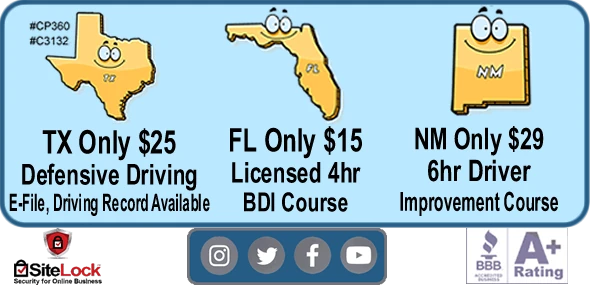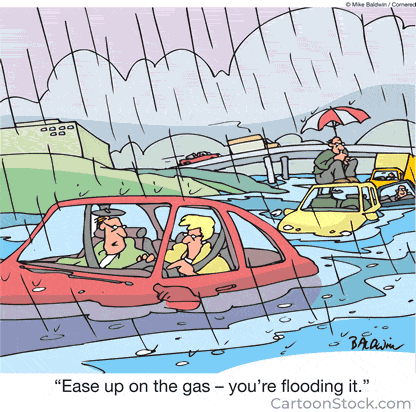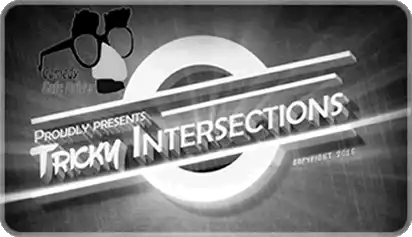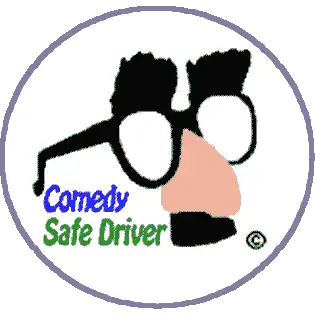
Psychological Comedy Class: Learn with Comedy Safe Driver
Join our Psychological Comedy Class to add some fun to your defensive driving course! Comedy Safe Driver is here to offer you a unique way of learning. Turn the potentially dull learning into a delightful and informative experience.
Alcohol and Its Effect on the Brain
Alcohol is a central nervous system depressant, which means it slows down brain functioning and neural activity. The effects of alcohol on the brain are complex and depend on a variety of factors such as the amount consumed, frequency of use, overall health, and individual biological differences. Here's a more detailed explanation of how alcohol affects the brain:
Short-Term Effects
-
Alcohol and Neurotransmitters: Alcohol, a central nervous system depressant, exerts its effects by interacting with various neurotransmitters in the brain. This interaction can alter mood, behavior, and cognitive function, and prolonged exposure can result in long-lasting changes in brain chemistry and structure.
Neurotransmitters are substances that transmit signals or messages between neurons, or nerve cells. Alcohol impacts several neurotransmitters, notably:
-
GABA (Gamma-Aminobutyric Acid): This neurotransmitter inhibits nerve transmission in the brain, which in turn calms nervous activity. Alcohol enhances the effects of GABA, causing a magnified inhibitory effect. This results in sedation, relaxation, and decreased anxiety. It is this mechanism that largely contributes to the feelings of relaxation people often seek from drinking alcohol.
-
Glutamate: The primary excitatory neurotransmitter in the brain, glutamate promotes the transmission of nerve impulses. Alcohol suppresses the release of glutamate, resulting in a slowdown in brain activity. This can lead to slowed reflexes, slurred speech, unsteady movements, and potentially altered states of consciousness.
-
Dopamine: This neurotransmitter is associated with the brain's reward system. Alcohol increases dopamine release in the brain's reward centers, which contributes to the pleasurable feelings some people associate with drinking. Over time, however, chronic alcohol use can lead to adaptations in the dopamine system that contribute to addiction.
-
Serotonin: This neurotransmitter is associated with mood regulation, among other things. Alcohol can increase the levels of serotonin in the brain temporarily, contributing to mood elevations. However, chronic use can deplete the brain's serotonin reserves, leading to mood swings, depression, and other negative emotional states.
In the long term, excessive or chronic alcohol consumption can lead to changes in brain function and structure. For example, alcohol can cause a reduction in the size of brain cells, lead to nutrient deficiencies that harm the brain, and result in an overall decrease in brain mass. These changes can have long-term impacts on cognitive function, memory, and emotional health.
Overall, alcohol's effects on neurotransmitters explain both the short-term effects of alcohol use and some of the long-term risks associated with alcohol dependence and addiction. It's important to remember that alcohol affects everyone differently, and these effects can be influenced by various factors including genetics, overall health, and patterns of use.
-
-
Impairment of Cognitive and Physical Abilities: Alcohol's effects on cognition and physical ability are multi-faceted and can vary based on a number of factors including the amount consumed, the individual's tolerance, their physical health, and their mental state. This impairment is often temporary, but chronic alcohol use can lead to long-lasting cognitive damage.
Cognitive Abilities:
-
Decision-making and impulse control: The prefrontal cortex is the part of the brain responsible for decision-making and impulse control. Alcohol slows the activity in this area, making it more difficult to think clearly, make good decisions, or control impulses. This could lead to risky behavior like unsafe sex, aggressive behavior, or substance misuse.
-
Judgment: Alcohol can also impair judgment, a function associated with the frontal lobes of the brain. This can lead to risky behaviors that an individual might not engage in when sober, such as drunk driving or involvement in physical fights.
-
Memory: Alcohol affects the hippocampus, the part of the brain responsible for creating new memories. This can lead to memory impairment, blackouts, and eventually, with chronic use, potentially irreversible damage to memory function. Alcohol can also affect the consolidation of long-term memories, interfering with learning.
Physical Abilities:
-
Coordination and motor control: Alcohol affects the cerebellum, the part of the brain that plays a role in coordination and motor control. This can result in a lack of physical coordination, unsteady movement, and clumsiness, leading to a higher risk of accidents and injuries.
-
Reaction time: Alcohol slows brain activity, which can delay reaction times. This becomes especially dangerous when operating machinery or driving, as it reduces the ability to respond quickly to changing situations.
These impairments are dangerous not only because of the potential for injury but also because they can result in legal consequences, such as when impaired driving leads to accidents or DUI charges. Long-term, excessive alcohol consumption can lead to lasting cognitive and physical impairments, even when sober, and can contribute to a variety of mental and physical health issues, including dependence and addiction.
-
Long-Term Effects
-
Brain Damage: Chronic, heavy alcohol consumption can lead to permanent brain damage. This can manifest in various ways, including difficulties with cognitive tasks, lowered IQ, and even physical changes in the brain such as a reduction in brain mass.
-
Neurological Problems: Long-term alcohol abuse can have detrimental effects on the neurological system, leading to various serious problems. Here's an elaboration on the neurological issues that can arise due to prolonged alcohol abuse:
-
Dementia: Chronic alcohol abuse can significantly increase the risk of developing dementia, which is a progressive decline in cognitive function. Alcohol-related dementia, also known as alcohol-related brain damage, can manifest as memory loss, impaired thinking skills, difficulty with problem-solving, and changes in personality. The damage to the brain's structure and function caused by alcohol can contribute to the development of dementia.
-
Stroke: Alcohol abuse is a significant risk factor for stroke. Regular and excessive alcohol consumption can raise blood pressure and disrupt the normal clotting mechanisms in the body. These effects can lead to the formation of blood clots or the rupture of blood vessels in the brain, resulting in a stroke. Strokes can cause severe neurological damage, such as paralysis, speech difficulties, and impaired motor skills.
-
Neuropathy: Alcohol-related neuropathy refers to damage to the peripheral nerves, which are responsible for transmitting signals between the brain, spinal cord, and the rest of the body. Prolonged alcohol abuse can result in nerve damage and peripheral neuropathy, leading to symptoms such as tingling, numbness, muscle weakness, and pain in the extremities (hands and feet). In some cases, the damage can be irreversible, affecting daily functioning and overall quality of life.
It's important to note that these neurological problems are often associated with long-term and heavy alcohol consumption. However, individual susceptibility may vary, and some people may experience these issues with lower levels of alcohol intake. The best way to prevent these problems is to practice responsible alcohol consumption or avoid alcohol altogether, especially if one is at risk due to genetic or personal factors. Seeking help from healthcare professionals and support groups can also be beneficial for those struggling with alcohol abuse.
-
-
Mental Health Issues: Alcohol use can also exacerbate mental health problems such as depression and anxiety and can increase the risk of developing these conditions.
-
Alcohol Dependence and Addiction: Continued, heavy use of alcohol can lead to physical dependence and addiction. The brain adjusts to the regular presence of alcohol and may suffer from withdrawal symptoms when alcohol use ceases. This can create a vicious cycle of addiction.
In the context of a psychological comedy class, understanding these effects of alcohol can help both in creating humor related to the subject (though always in a respectful and non-derogatory way) and in raising awareness about the serious implications of alcohol misuse. It's essential to stress the importance of responsible drinking and to discourage behaviors such as drunk driving that can lead to serious harm or even fatalities.
Psychological Comedy Class: Exploring the Psychological Effects of Alcohol
A Psychological Comedy Class is an educational program that uses humor as a tool to engage students and make complex concepts more approachable and understandable. With this unique combination, the class not only offers valuable knowledge about psychology and the effects of alcohol but also provides an enjoyable and entertaining learning experience.
Understanding through Humor: Comedy is a powerful tool for making difficult or uncomfortable subjects more palatable. It can defuse tension and create an environment where people feel more open to discussing and understanding complex topics like alcohol's impact on mental health. Through humor, we can explore the various effects alcohol can have on our behavior, emotions, and cognitive functioning in a way that is accessible and engaging.
Key Topics of the Class:
-
Impaired Judgment and Decision-Making: Alcohol's impact on our cognitive functions can lead to poor decision-making, which can be life-threatening in certain situations, like when choosing to drink and drive. Comedy skits or funny anecdotes can help illustrate this point effectively, showing the ridiculousness or absurdity of decisions made under the influence.
-
Mood Alterations: Alcohol can significantly affect our emotions, leading to mood swings, aggression, or even depression. This can be explored through humorous storytelling or comic demonstrations, which can highlight these changes in a light-hearted yet impactful way.
-
Dependence and Addiction: These are serious issues, but they can be discussed more openly in a supportive and humorous environment. This might involve using satire or dark humor to underscore the seriousness of addiction while also encouraging empathy and understanding.
-
Social Impact: Alcohol consumption is often socially motivated and can lead to risky behavior. Role-playing exercises or comedic sketches can demonstrate the social dynamics that encourage drinking, and the potential consequences, in a relatable and engaging manner.
The aim of a Psychological Comedy Class exploring the psychological effects of alcohol is to promote a deeper understanding of these issues and to encourage healthier attitudes toward drinking. It's about using humor as a tool to facilitate dialogue, enhance learning, and promote responsible behavior. The ultimate goal is not just to educate, but also to equip individuals with the knowledge to make better decisions, particularly around alcohol use and driving.
Are You Ready to Learn the Fun Way?
By signing up for our Psychological Comedy Class, you're taking the first step to becoming a more responsible driver. You'll understand the effects of alcohol on the brain, both physical and psychological, and you'll have a blast doing it! So, don't wait - join our Comedy Safe Driver course and discover defensive driving like you've never seen it before!















